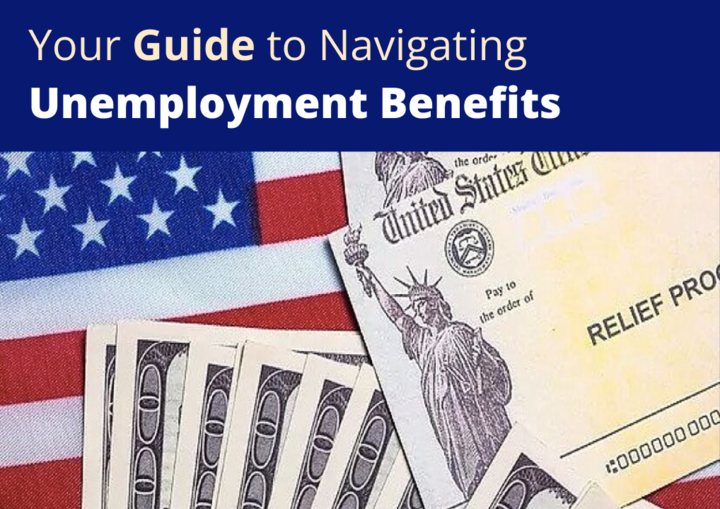Debt consolidation loans are financial instruments designed to help individuals manage multiple debts by combining them into a single loan. This process involves taking out a new loan to pay off various existing debts, such as credit card balances, personal loans, or medical bills. The primary goal of debt consolidation is to simplify the repayment process and potentially reduce the overall interest rate, making it easier for borrowers to manage their financial obligations.
By consolidating debts, individuals can streamline their payments, often resulting in a single monthly payment rather than juggling multiple due dates and amounts. The mechanics of debt consolidation can vary depending on the type of loan chosen. Borrowers may opt for secured loans, which require collateral, or unsecured loans that do not necessitate any assets as security.
The choice between these options often hinges on the borrower’s creditworthiness and financial situation. For instance, those with good credit may qualify for lower interest rates on unsecured loans, while individuals with less favorable credit histories might find secured loans more accessible, albeit with the risk of losing their collateral if they default. Understanding the nuances of these loans is crucial for making informed financial decisions.
Key Takeaways
- Debt consolidation loans combine multiple debts into a single loan with one monthly payment
- Lower interest rates can save money over time and make it easier to pay off debt
- Simplified repayment process makes it easier to manage and keep track of payments
- Improved credit score can result from making consistent, on-time payments
- Reduced stress and anxiety from managing multiple debts and payments
Lower Interest Rates
One of the most compelling reasons to consider a debt consolidation loan is the potential for lower interest rates. Many individuals find themselves trapped in a cycle of high-interest debt, particularly with credit cards that can carry rates exceeding 20%. By consolidating these debts into a single loan with a lower interest rate, borrowers can significantly reduce the amount they pay over time.
For example, if someone has $10,000 in credit card debt at an average interest rate of 18% and consolidates it into a personal loan with a 10% interest rate, they could save hundreds of dollars in interest payments over the life of the loan. Moreover, lower interest rates can also lead to a more manageable repayment schedule. When borrowers are not burdened by exorbitant interest charges, they can allocate more of their monthly payment toward the principal balance, allowing them to pay off their debts more quickly.
This shift not only accelerates the journey to financial freedom but also enhances the overall financial health of the borrower.
It is essential for individuals considering debt consolidation to shop around and compare offers from various lenders to secure the best possible rate.
Simplified Repayment Process
The repayment process associated with multiple debts can often feel overwhelming, especially when different creditors have varying due dates and payment amounts. Debt consolidation simplifies this process by merging all outstanding debts into one single payment. This streamlined approach not only reduces confusion but also minimizes the risk of missing payments, which can lead to late fees and further damage to one’s credit score.
For many borrowers, the psychological relief that comes from having a single payment is as significant as the financial benefits. Additionally, a simplified repayment process allows individuals to better manage their budgets. With only one payment to track each month, borrowers can allocate their resources more effectively and plan for future expenses without the constant worry of juggling multiple creditors.
This clarity can lead to improved financial discipline and a greater sense of control over one’s financial situation. As borrowers become more organized in their repayment efforts, they may also find it easier to stick to their budgets and avoid accumulating new debt.
Improved Credit Score
Debt consolidation can have a positive impact on an individual’s credit score, particularly if managed responsibly. When borrowers consolidate their debts and pay off high-interest accounts, they reduce their overall credit utilization ratio—the amount of credit being used compared to the total available credit. A lower utilization ratio is generally viewed favorably by credit scoring models, which can lead to an increase in the borrower’s credit score over time.
Furthermore, making consistent, on-time payments on a consolidated loan can further enhance credit scores. Payment history is one of the most significant factors influencing credit scores; therefore, establishing a reliable payment record through a debt consolidation loan can demonstrate financial responsibility to creditors. As borrowers see their scores improve, they may become eligible for better financing options in the future, creating a positive feedback loop that encourages responsible financial behavior.
Reduced Stress and Anxiety
The emotional toll of managing multiple debts can be significant, leading to stress and anxiety that permeates various aspects of life. The constant worry about making payments on time and the fear of falling deeper into debt can create a heavy psychological burden. Debt consolidation offers a pathway to alleviate some of this stress by simplifying financial obligations and providing a clearer path toward repayment.
Knowing that there is only one payment to manage each month can bring peace of mind and allow individuals to focus on other important areas of their lives. Moreover, the act of taking control over one’s financial situation through debt consolidation can be empowering. As borrowers see progress in paying down their debts and improving their financial health, they may experience a boost in confidence and motivation.
This newfound sense of control can lead to healthier financial habits and a more positive outlook on personal finances overall. The reduction in stress associated with debt management can also have broader implications for mental health and well-being.
Potential Savings on Monthly Payments
In addition to lower interest rates, debt consolidation loans often result in reduced monthly payments compared to what borrowers were previously paying across multiple debts. By extending the repayment term or securing a lower interest rate, individuals may find that their monthly obligations decrease significantly. For instance, if someone was paying $500 per month across several high-interest credit cards and consolidates that debt into a loan with a lower rate and longer term, they might reduce their monthly payment to $350.
This reduction in monthly payments can free up cash flow for other essential expenses or savings goals. Individuals may choose to allocate these savings toward building an emergency fund, investing in retirement accounts, or even pursuing personal interests such as education or travel. The flexibility that comes with lower monthly payments can enhance overall financial stability and provide opportunities for growth that may have previously seemed unattainable.
Options for Secured and Unsecured Loans
When considering debt consolidation loans, borrowers have the option to choose between secured and unsecured loans based on their financial circumstances and preferences. Secured loans require collateral—such as a home or vehicle—which can make them more accessible for individuals with lower credit scores. Because these loans are backed by an asset, lenders may offer lower interest rates compared to unsecured loans.
However, this option carries inherent risks; if borrowers fail to make payments, they could lose their collateral. On the other hand, unsecured loans do not require collateral but typically come with higher interest rates due to the increased risk for lenders. These loans are often based solely on the borrower’s creditworthiness and income level.
Individuals with strong credit histories may find unsecured loans appealing because they do not risk losing any assets while still benefiting from debt consolidation.
Ultimately, the choice between secured and unsecured loans will depend on individual circumstances, including credit score, available collateral, and personal comfort with risk.
Access to Financial Education and Counseling
Engaging in debt consolidation often opens doors to valuable resources such as financial education and counseling services. Many lenders offer educational materials or access to financial advisors who can help borrowers understand their options and develop effective budgeting strategies. This guidance is particularly beneficial for individuals who may not have had prior exposure to sound financial practices or who are seeking ways to improve their overall financial literacy.
Financial counseling can provide personalized insights into managing debt effectively and avoiding future pitfalls. Counselors can assist borrowers in creating realistic budgets, setting achievable financial goals, and developing strategies for maintaining healthy credit habits post-consolidation. By equipping individuals with knowledge and tools for better financial management, debt consolidation becomes not just a means of addressing current debt but also an opportunity for long-term financial wellness and stability.
FAQs
What is a debt consolidation loan?
A debt consolidation loan is a type of loan that allows you to combine multiple debts into a single loan with a lower interest rate. This can make it easier to manage your debt and potentially save money on interest payments.
How does a debt consolidation loan work?
When you take out a debt consolidation loan, the funds are used to pay off your existing debts. This leaves you with a single loan to repay, often at a lower interest rate than your previous debts. This can simplify your finances and potentially save you money in the long run.
What are the benefits of a debt consolidation loan?
Some potential benefits of a debt consolidation loan include simplifying your finances by combining multiple debts into one, potentially lowering your interest rate and monthly payments, and saving money on interest payments over time.
Who can benefit from a debt consolidation loan?
Individuals who have multiple high-interest debts, such as credit card debt or personal loans, may benefit from a debt consolidation loan. It can also be helpful for those who are struggling to manage multiple debt payments each month.
What are the potential drawbacks of a debt consolidation loan?
While debt consolidation loans can offer benefits, it’s important to consider potential drawbacks as well. These may include paying more in interest over the long term if the loan term is extended, and the risk of accumulating new debt if spending habits are not addressed.







